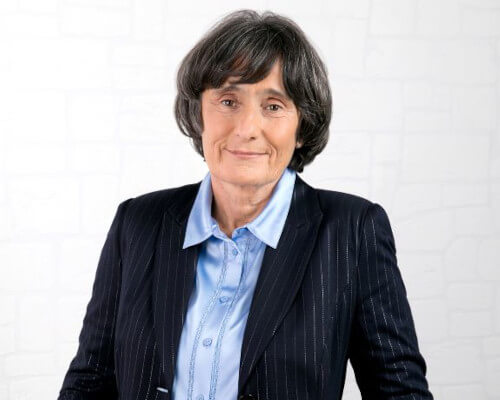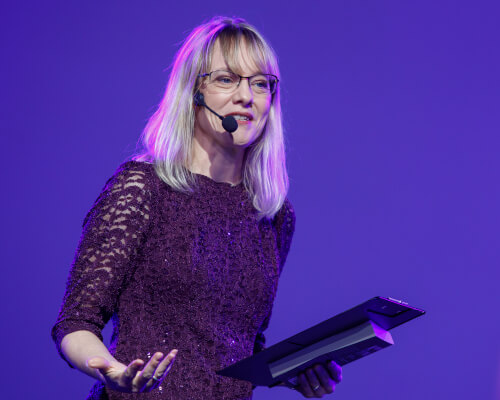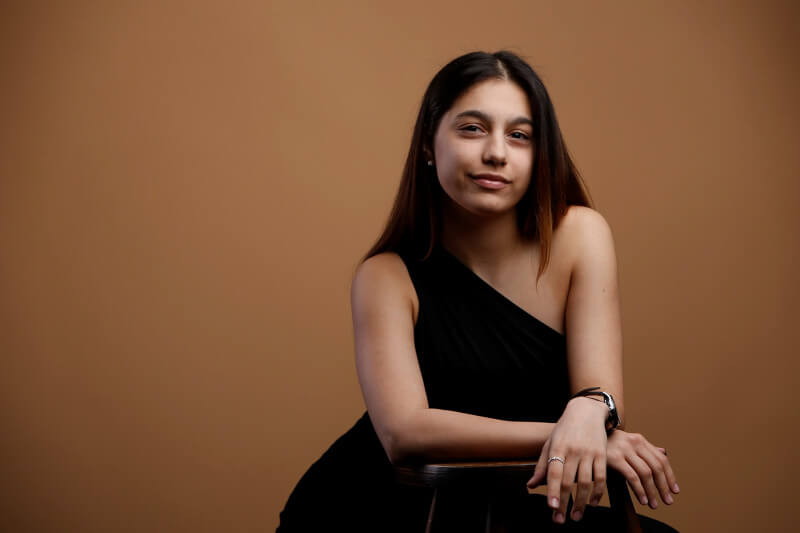
Seven performing artists, a two-hour entertainment program featuring dance, music, and standup comedy, an audience of over 100 people, and more than 2,000 Bulgarian levs ($1,100) raised for the benefit of a Ruse hospital.
This is a snapshot of the very first fundraiser Boryana Vasileva organizes in her life. The event was the 19-year-old’s final project in the individual mentorship program ABLE Mentor.
The three-month program connects high school students like Boryana seeking extracurricular learning opportunities and experienced professionals willing to counsel youth. Mentor-mentee pairs work on a project close to the young person’s heart or on developing specific skills.
Organizing a fundraising event with an entertainment program appealed to Boryana’s interest in music and dance, event management, and sales and, most importantly, to her desire to do something for Bulgaria’s children. The raised funds will be donated for the renovation of the children’s ward at Ruse’s largest state hospital. The choice of city was intentional, too: Boryana’s father, whom she lost in the pandemic, was born there.
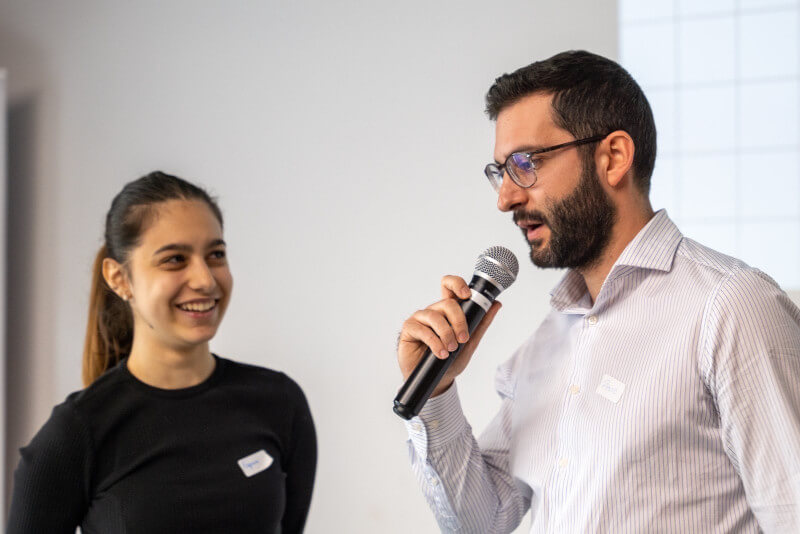
Boryana’s experience in ABLE Mentor was so positive that she joined the team as a volunteer. In addition to helping out with marketing and matching mentors to mentees, she will be emceeing at the program’s final in June.
How do you turn loss into something positive? What’s it like to have a mentor and organize an event in less than a month? If you are a person of many interests, how do you pick which one to pursue? (Hint: Find a mentor!)
Boryana told us all about it in this Q&A for the America for Bulgaria Foundation’s monthly newsletter.
America for Bulgaria Foundation: Why did you enroll in a mentorship program?
Boryana Vasileva: At a seminar organized by the European Union, I asked one of the presenters how young people were expected to learn the things that aren’t taught at school. He mentioned ABLE Mentor. I didn’t need any more prompting: I applied, and after a month and a half I received an email that I was accepted in the program.
ABF: What did you want to learn that isn’t taught at school?
B.V.: Time management as a whole. Communication with people. Presentation skills, which we can’t acquire at school because of the faster pace of student assessment. Certainly business skills, email writing, talking on the phone. I was really anxious when I had to talk to more experienced people than myself on subjects that were more consequential than any of my conversations so far.
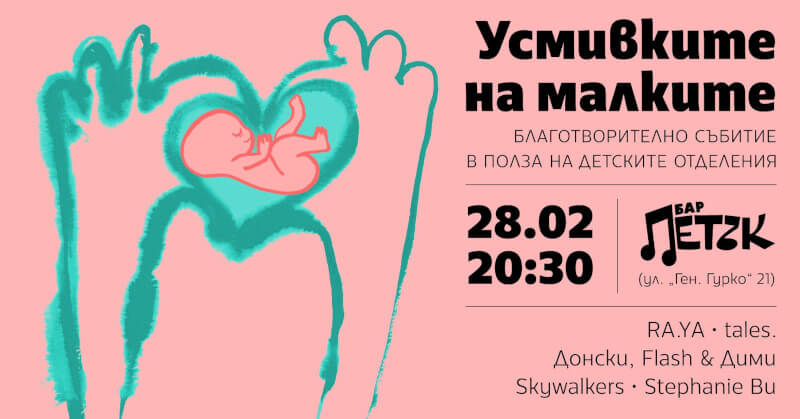
My mentor and I focused on organizing the event, but when you are putting an event together, you need to manage your time, you need to have communication skills. Suddenly, you’re faced with everything all at once. When I was asked at the beginning of the program what I wanted to work on — personal development, a social project, or a business idea — I answered “all three,” not realizing that whatever I selected, I would be working in all three directions.
ABF: So how did you arrive at the idea for a fundraiser?
B.V.: I started out thinking I would work on a business idea, but after talking it over with my mentor, I realized that maybe now is not the time and I should do something for someone else first. The idea came very naturally from the fact that I have always wanted to organize events.
Organizing the event wasn’t as hard as I expected, but I had a lot of help. People in the program helped me a lot, and my mentor kept cheering me on. There were days when I was at the limit of my abilities, but in the end everything came together very naturally. It took us a month to organize the actual event.
ABF: What was your inspiration to do this particular project?
B.V.: When I lost my dad and I was at my lowest point, there was no one to help me, no one to provide counsel. I wanted to help other kids, even if they weren’t in the same situation, to show them that there is someone out there who cares. One day, they will return the gesture.
ABF: What’s it like to have a mentor?
B.V.: It was a very strange feeling, at first. My mentor and I are really different but also alike at the same time. We understood each other and helped each other out. He has two small children, and his thinking that we should think about others, not just ourselves, had a huge impact on me. Having a mentor is very different from having your family advise you. It gives you a different perspective.
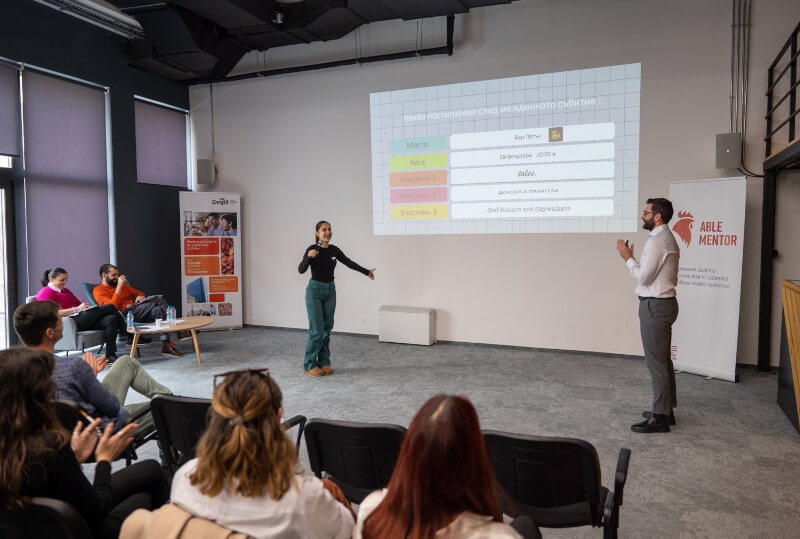
ABF: Please complete the sentence: My mentor is…
B.V.: … my friend.
ABF: What is the most important lesson you learned through ABLE Mentor?
B.V.: I was a different person before the program. I was super pumped, I wanted to do 66,000 different things. In the end, I realized that not everything can be done right away and the price you pay in the process matters. Overachieving took a toll on my life, on my communication with people. When you want to achieve something at any cost, you become too single-minded and forget about other things.
The biggest change the program brought to my life was to remember to enjoy myself.
Young people are extremely passive, at least the people in my surroundings. That was one of the reasons I enrolled in the program. It attracts a small group of students from around Bulgaria who want to do something with their lives. This is why I came back as a volunteer in season 19. I am really glad to have met the people on the volunteer team. We can discuss any subject, and they always support me. They were at the event and were really happy for me. This is a testament to how much the program brings people together.
ABF: What do you like to do in your spare time?
B.V.: Until recently, all I did in my free time was dance. Now I do sports, different kinds of sports. I like walking in the mountains; it calms me down the most. I like going out with friends. Sharing my time with people who respect my time is very important to me.
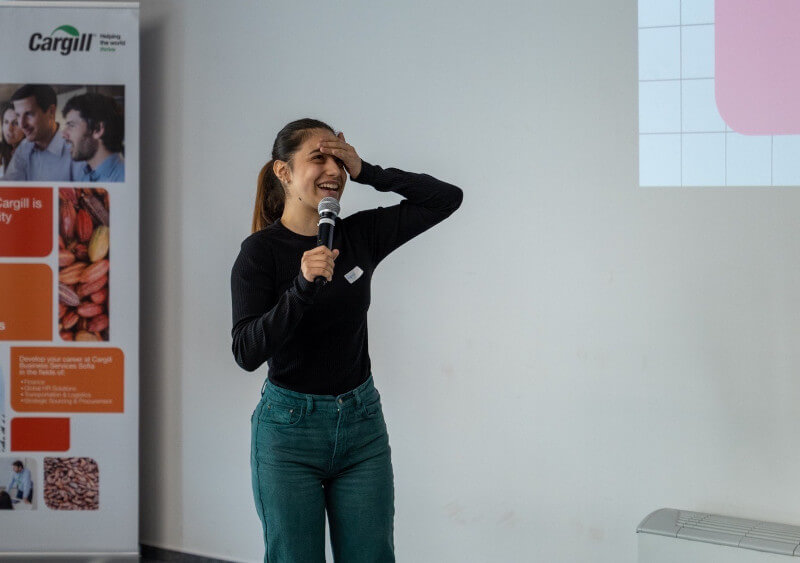
ABF: Favorite school subject?
B.V.: Definitely history. I really like to know things, to analyze all kinds of topics, which often leads to endless discussions. History has given me a lot of general knowledge, and I am very grateful to my history teachers.
History is important to study because, without it, we wouldn’t know where we began our journey, we wouldn’t understand our own roots and what areas we need to work on.
ABF: Which famous person, past or present, would you want as a mentor?
B.V.: I admire most builders of brands and businesses and athletes who start from scratch. I can learn a lot from them because they started from nothing and fought their way to success.
ABF: Do you have a favorite thought or guiding principle in life?
B.V.: I do have one, and it is the slogan of the ABLE Mentor program: you’re either part of the problem, or you’re part of the solution.
ABF: Where do you see yourself in five years?
B.V.: I hope to have found something I enjoy professionally. I hope to be going to work with a smile on my face. I have many interests, and I have never been able to focus on a single one.
I would like to pursue business administration in English at the economics department of Sofia University. After completing my bachelor’s degree, I hope to do a master’s degree abroad. I chose business administration because this major has everything about this new world of ours that is not taught at school — how to manage your money, how to keep up with the times, how to do sales. I would like to get experience in sales, in a variety of fields. That’s what I’m interested in the most — convincing a person to buy something or give to others.
I chose to study in Bulgaria because this is where I see my future.
The America for Bulgaria Foundation promotes youth development through support for initiatives like ABLE Mentor.
